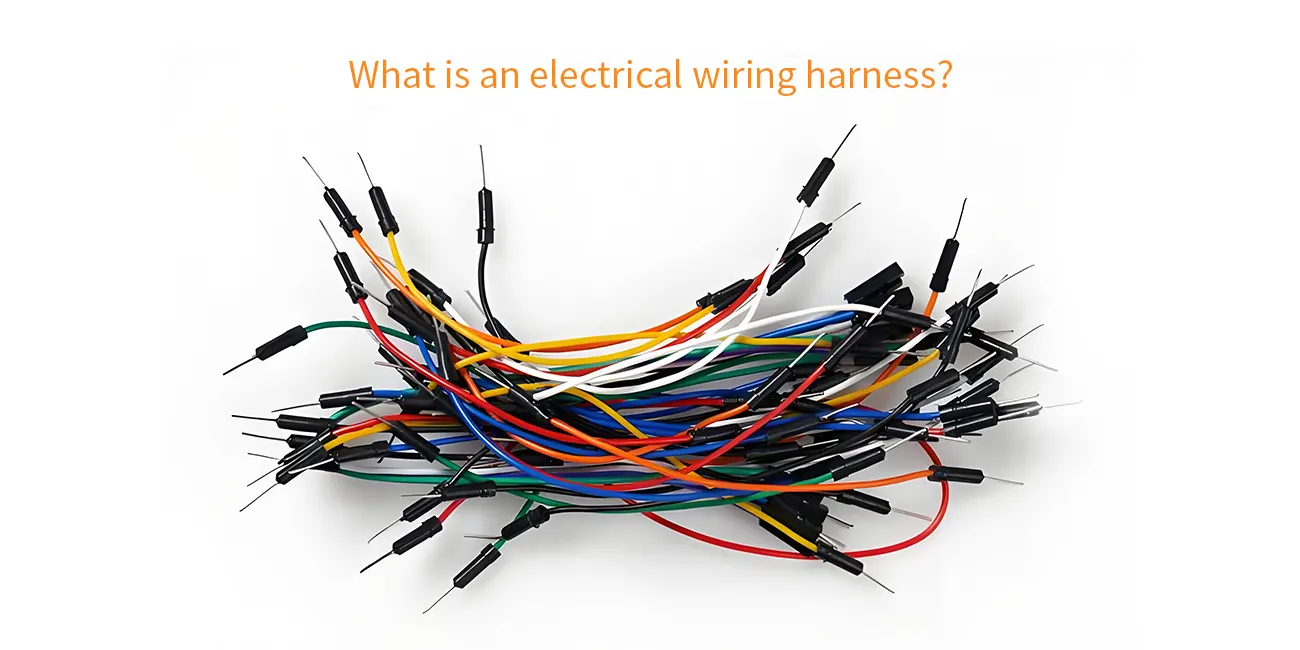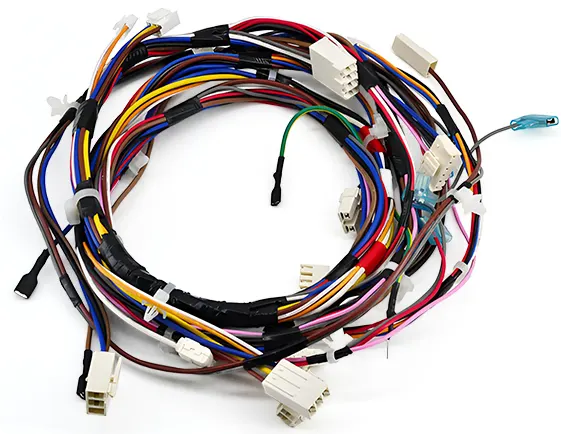
By quanyu lee
2025-06-12 08:03:12
What is an electrical wiring harness?
An electrical wiring harness is the basic connection component of electrical equipment. Compared with automotive wiring harness, electronic wiring harness, etc., its core difference is reflected in the environmental requirements of application scenarios, and its function focuses on power transmission.

The difference between electrical wiring harness and other wiring harnesses
| Application areas | Electrical wiring harness | Other wiring harnesses |
| Core use | Provide circuit connections for household appliances (such as refrigerators, air conditioners), industrial appliances (such as machine tool control cabinets), etc., focusing on power transmission and basic signal conduction. | Automotive wiring harness: needs to adapt to the vehicle environment (vibration, high temperature, electromagnetic interference), connecting complex systems such as engines and dashboards; Electronic wiring harness: mostly used for precision electronic equipment (such as computers and communication equipment), focusing on high-frequency signal transmission and miniaturization design. |
| Typical scenario | Internal wiring of household appliances and electrical control systems of factory equipment. | Automobile circuit system, mobile phone/computer internal wiring. |
Wiring harnesses for household appliances and industrial equipment:
- Voltage: usually 220V or 380V
- Current: usually between 10-30 amps
Automotive wiring harness:
- Ordinary vehicle systems: 12V or 24V low voltage
- New energy vehicle power systems: voltage may be higher, current can reach several hundred amperes
Electronic equipment wiring harness:
- Voltage: mostly below 5V
- Current: usually milliampere level (very small)
- Key point: ensure stable signal transmission
Signal transmission characteristics:
- Electrical wiring harnesses mainly transmit industrial frequency current and have low requirements for signal frequency; while electronic wiring harnesses (such as HDMI and USB wiring harnesses) need to transmit high-frequency digital signals, and need to consider issues such as impedance matching and crosstalk suppression. They may use special structures such as twisted pair cables and coaxial cables.

Electrical wiring harnesses are usually bound with PVC tape or wrapped with corrugated tubes, and have a simple structure. To prevent wear and water damage, automotive wiring harnesses may be shielded with flannel tape or metal braided mesh, and the joints are sealed with waterproof glue. To reduce the size of electronic wiring harnesses, heat shrink tubing is often used or they are directly welded on the circuit board, and some high-frequency wiring harnesses need to be shielded separately.

There are two main types of wires used in electrical wiring harnesses: single copper core wires and multiple copper wires twisted together. The thickness of the wire is determined by the cross-sectional area. Simply put, the thickness of the wires used in different places is different. The more sophisticated the equipment, the thinner the wires used. Automobiles use a combination of wires of various thicknesses because of the complex wiring.

The thickness of the wires used in electrical wiring harnesses depends on their purpose: household use usually uses 1.5-2.5 square millimeters of copper wire. Due to the complexity of the circuits in automobiles, different thicknesses are mixed (from very thin 0.1 to very thick 16 square millimeters), and the wires used in electronic products are the thinnest (0.08 square millimeters). Now many directly use flexible circuit boards instead of wires.



